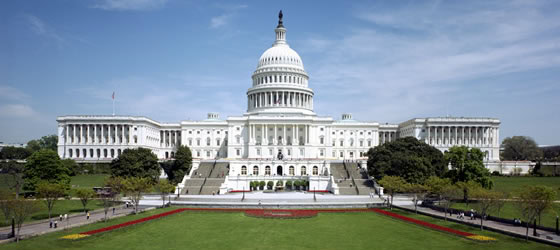Election 2020: A New Era in Washington

Editor’s Note: The following is an excerpt of a News from Washington column by TRSA Vice President of Government Relations Kevin Schwalb that will appear in December’s issue of Textile Services magazine. If you have any questions about TRSA’s advocacy efforts on behalf of the linen, uniform and facility services industry, contact Schwalb at kschwalb@trsa.org.
An election that many pollsters thought was all over for Republicans before it started turned out quite differently on Election Day. At this writing, races in key states remain too close to call. What we do know is that Joe Biden (D) is projected to be the 46th president of the United States. In Congress, Republicans picked up at least nine seats in the House of Representatives, and it’s plausible that they’ll pick up more. Meanwhile, control of the Senate will wait until January 2021 for two runoff campaigns in Georgia. Regardless of the ultimate outcome, hopes by either party of an electoral mandate and sweeping legislative change are now tempered.
Post-Election Day, we can now see the impact of changes to state election laws that were enacted in response to the coronavirus pandemic. More than 100 million Americans voted early or by absentee ballot or by mail this year, exercising their fundamental rights in what we now know will be the deciding factor in this election.
Should we see a unified Democratic government, it will turn to the comprehensive legislative roadmap House Democrats have drawn over the past two years. We should also expect to see efforts at enacting significant changes to the laws with which we elect our representatives in Washington.
The most likely scenario is a Biden presidency and a Republican hold in the Senate. Majority Leader Mitch McConnell (R-KY), who crafted three major bipartisan economic deals with then-Vice President Biden during the Obama administration, now will be well positioned to replicate that model. That prospect of bipartisan deal-making will hinge on whether Biden and congressional Democrats decide to focus on legislative outcomes. After four years of conflict and confrontation, with the Senate Republican majority primarily focused on reshaping the federal judiciary, the stage soon will be set either for continued conflict, or for compromise legislation on COVID-19 relief, infrastructure, trade and healthcare. But under this scenario, with the Republican drive to fill the courts effectively over as of January 2021, new areas of potential compromise and legislative entrepreneurialism among lawmakers of both parties will soon emerge.
A Democratic administration still will seek to advance major policy initiatives. These will likely start with legislation in the form of a COVID-19 bill that will address health priorities and provide economic-stability measures. You also can expect a major infrastructure and economic-stimulus bill that will feature climate-change provisions. Other priorities likely will include a call for passage of drug-pricing legislation and a bill to modernize the Voting Rights Act. The latter proposal will likely include reform provisions aimed at gerrymandering and political contributions.
Stay tuned and brace for changes in the nation’s capital. And don’t forget, you can get all the latest information on new laws and regulations at TRSA’s Legislative Conference and Industry Awards Dinner, scheduled for March 24-25, 2021, in Washington, DC. For more information, visit www.trsa.org/legcon.
